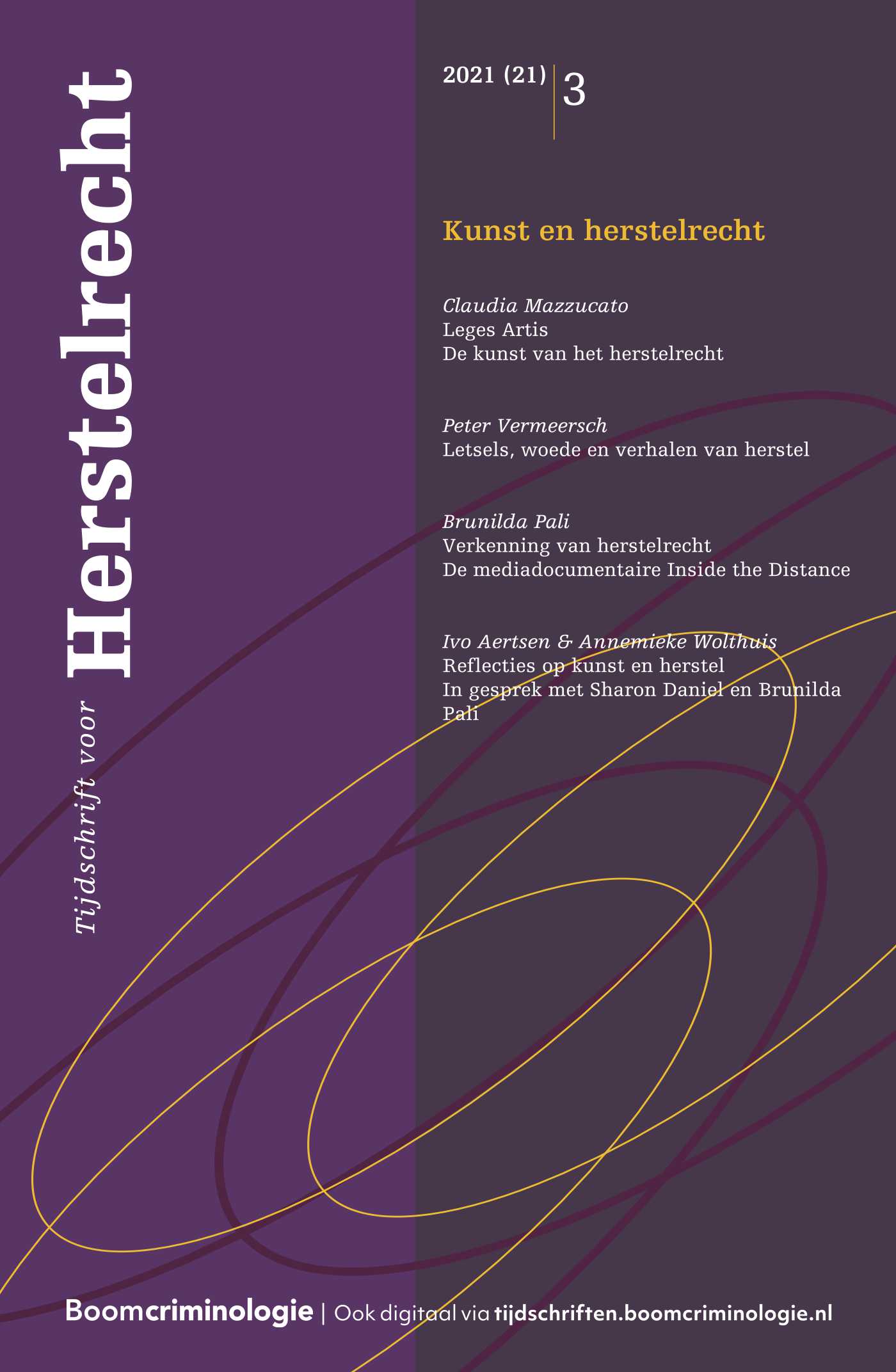|
The application of restorative justice to sexual harassment and abuse at work is anything but straightforward. Elsewhere, I have therefore argued that at least ten preconditions must be met before a restorative approach can be adopted to respond to allegations of sexual harassment in the world of work. In this article, I explore this argument in more depth, arguing that the strength of restorative justice lies in its ability to validate and redress indirect forms of harm that are caused by certain behaviours but that will never be addressed by administrative and disciplinary procedures, such as harms resulting from victim blaming. The article concludes that restorative justice should not necessarily be seen as an alternative to a disciplinary approach to unwanted conduct at work, but rather as a valuable complement to it. It is the norm-setting capacity of disciplinary approaches together with the trauma-sensitive and harm-focused perspective of restorative justice that provides a powerful combination to affect the culture change necessary to redress a broad spectrum of harm and ultimately to prevent sexual harassment and abuse. |


Tijdschrift voor Herstelrecht
Meer op het gebied van Mediation en herstelrecht
Over dit tijdschriftMeld u zich hier aan voor de attendering op dit tijdschrift zodat u direct een mail ontvangt als er een nieuw digitaal nummer is verschenen en u de artikelen online kunt lezen.
| Column |
Een herstelplek na seksueel geweld |
| Trefwoorden | Verbinding, Ontmoeten, Herstelplek, Wachtverzachter |
| Auteurs | Sonja Graansma |
| Auteursinformatie |
| Redactioneel |
|
| Auteurs | Katrien Lauwaert, Anneke van Hoek en Sanne Verijdt |
| Auteursinformatie |
| In Memoriam |
In memoriam Kris Vanspauwen |
| Auteurs | Anneke van Hoek, Annemieke Wolthuis en Katrien Lauwaert |
| Auteursinformatie |
| Artikel |
|
| Trefwoorden | Seksueel grensoverschrijdend gedrag, Seksueel geweld, Herstelrecht, Traumasensitief |
| Auteurs | Dieneke de Vos |
| SamenvattingAuteursinformatie |
| Artikel |
De Nederlandse herstelbemiddelingspraktijk in zedenzaken |
| Trefwoorden | herstelbemiddeling, incest, seksueel grensoverschrijdend gedrag, zeden |
| Auteurs | Sanne Verijdt en Nathalie de la Cousine |
| SamenvattingAuteursinformatie |
|
In this article we explain the practice of restorative mediation from Perspectief Herstelbemiddeling in sexual offenses. You can read about the increasing numbers of cases of sexual assault and abuse reported. Furthermore we will explain why sexual offenses cost more time, the diversity in sexual offenses and why a careful preparation is crucial. Two mediators explain what it means and what is needed in cases like this. Finally, there is also an inspiring story of a victim of sexual abuse and her experience with restorative justice. |
| Artikel |
Herstelgerichte dialoog bij zedenfeiten in VlaanderenDe ervaring van Moderator vzw |
| Trefwoorden | Herstelrechtelijke dialoog, Zedenfeiten, Seksueel grensoverschrijdend gedrag, Slachtoffer-daderbemiddeling, Dialooggroepen |
| Auteurs | Katrien Lauwaert, Kristel Buntinx en Pieter Verbeeck |
| SamenvattingAuteursinformatie |
|
This article presents the experience of Moderator vzw, a Flemish restorative justice organization, in the field of restorative dialogue after sexual offences. Sexual offences are present in every type of restorative dialogue Moderator vzw offers: classical victim-offender mediation, non-related mediation, extra-judicial victim-offender mediation, dialogue groups and the so-called restauration fund. It is a challenging field of work, were risks present in all restorative dialogue come forward more sharply. Different strategies have been put in place to make restorative dialogue possible in a safe and qualitative way. The article concludes with the description of a mediation process between an offender and his rape victims. |
| Interview |
Wijziging van de zedenwetgeving in België en Nederland: een positieve ontwikkeling?Dubbelinterview met Liesbet Stevens en Zahra Boufadiss |
| Trefwoorden | Zedenwetgeving, Rechtsvergelijking, Instemming, Strafrechtelijke aansprakelijkheid, Seksuele misverstanden |
| Auteurs | Janny Dierx, Anneke van Hoek en Renée Kool |
| SamenvattingAuteursinformatie |
|
In the Netherlands the sexual criminal law is recently significantly adapted and these changes will come into force in July 2024. In Belgium this modernization of the sexual criminal law already happened in 2022. To exchange experiences and opinions on these (upcoming) legal changes an interview was organized with a Dutch and Flemish expert: Dutch lawyer Zarah Boufadiss and Flemish professor in sexual criminal law Liesbet Stevens. Part of the conversation was dedicated to exchanging views on the role of Restorative Justice in such cases. |
| Boekbespreking |
Het conventionele strafrecht faalt bij seksueel geweld. Dat is het oude nieuws. What’s new? |
| Trefwoorden | Seksueel geweld, Restorative justice, Waarheidsvinding |
| Auteurs | Janny Dierx |
| Auteursinformatie |
| Praktijkberichten |
Claire McFarlane op weg naar mondiaal herstel na seksueel geweld |
| Trefwoorden | seksueel geweld, (mondiaal) herstel, rechtssysteem, survivors |
| Auteurs | Sanne Verijdt, Annemieke Wolthuis en Sonja Graansma |
| SamenvattingAuteursinformatie |
|
Report of an inspirational meeting in which Claire McFarlane tells her personal story about how she became a victim of sexual violence, how she once again felt victimized by the French (legal) system and how she travels all over the world with ‘Footsteps To Inspire’. With Footsteps To Inspire she has set herself the goal to run 16 km (along the beach) in every country of the world to share her story, to inspire hope and one day peacefully end sexual violence. Finally this report ends with a personal reflection of Sonja Graansma, also a victim of sexual violence, on the Dutch (legal) system. |
| Diversen |
The International Journal of Restorative JusticeEleven International Publishing |

